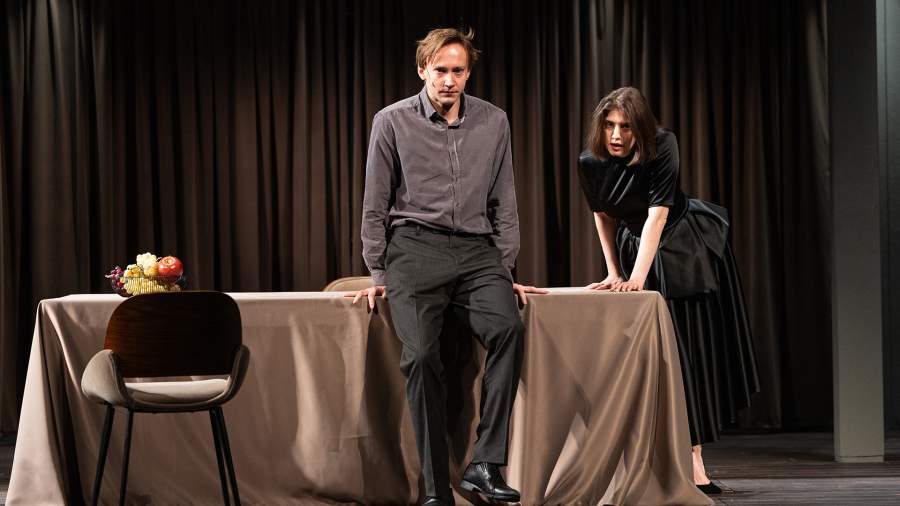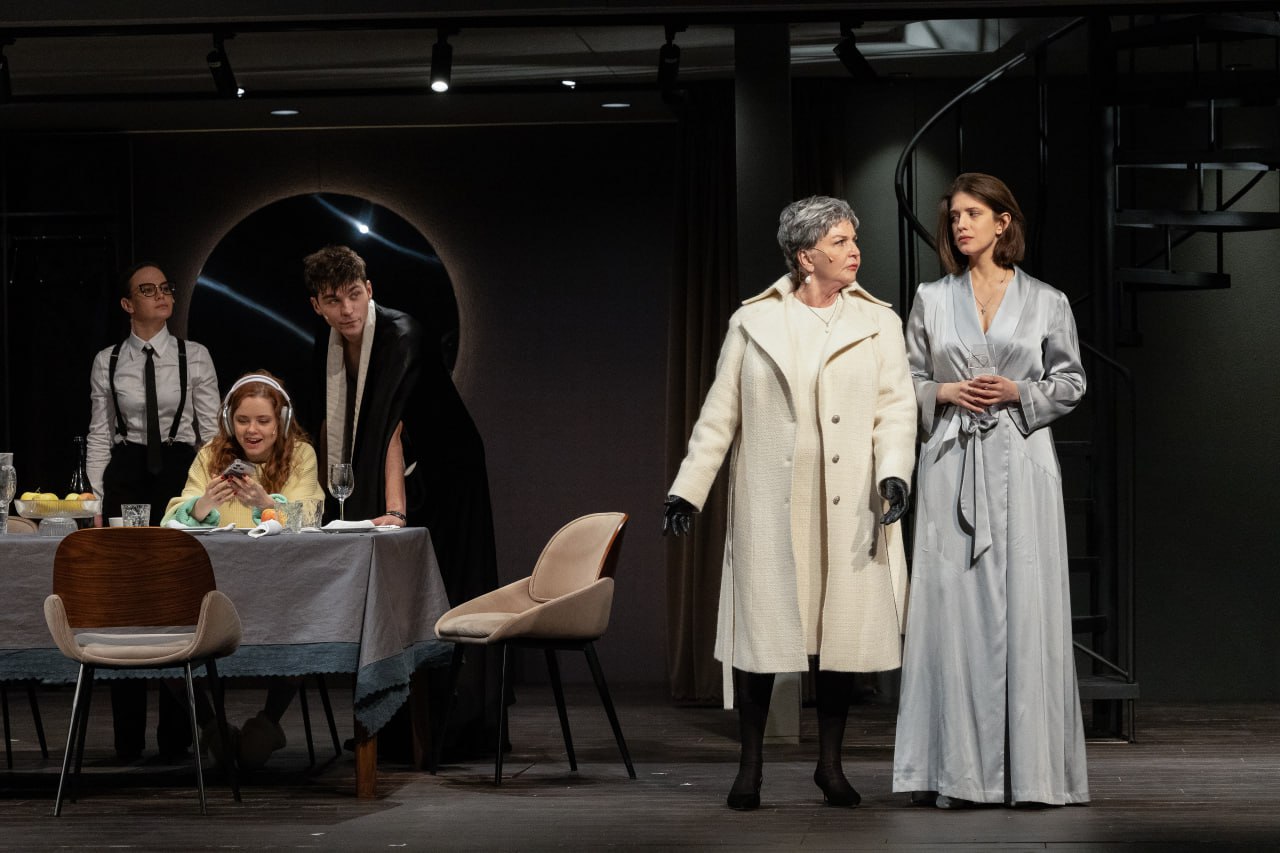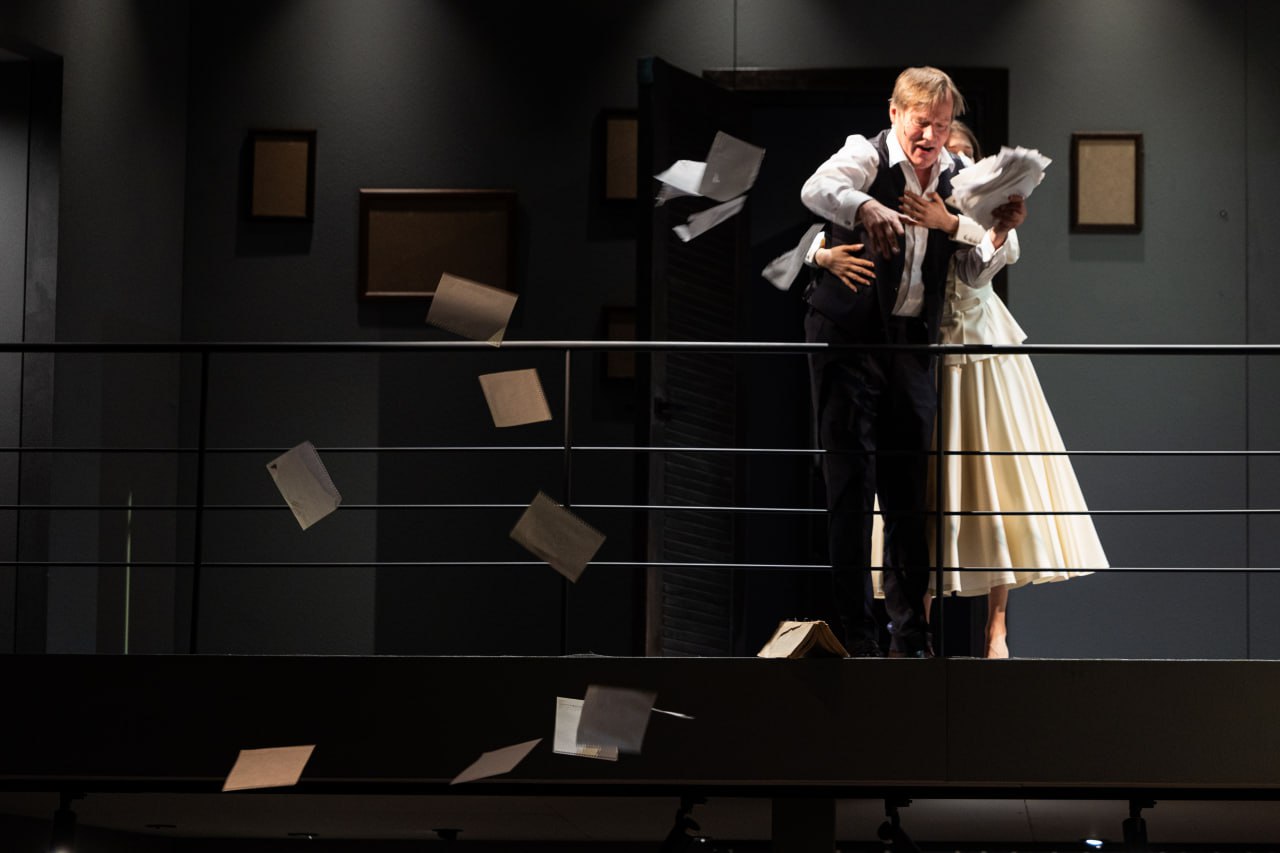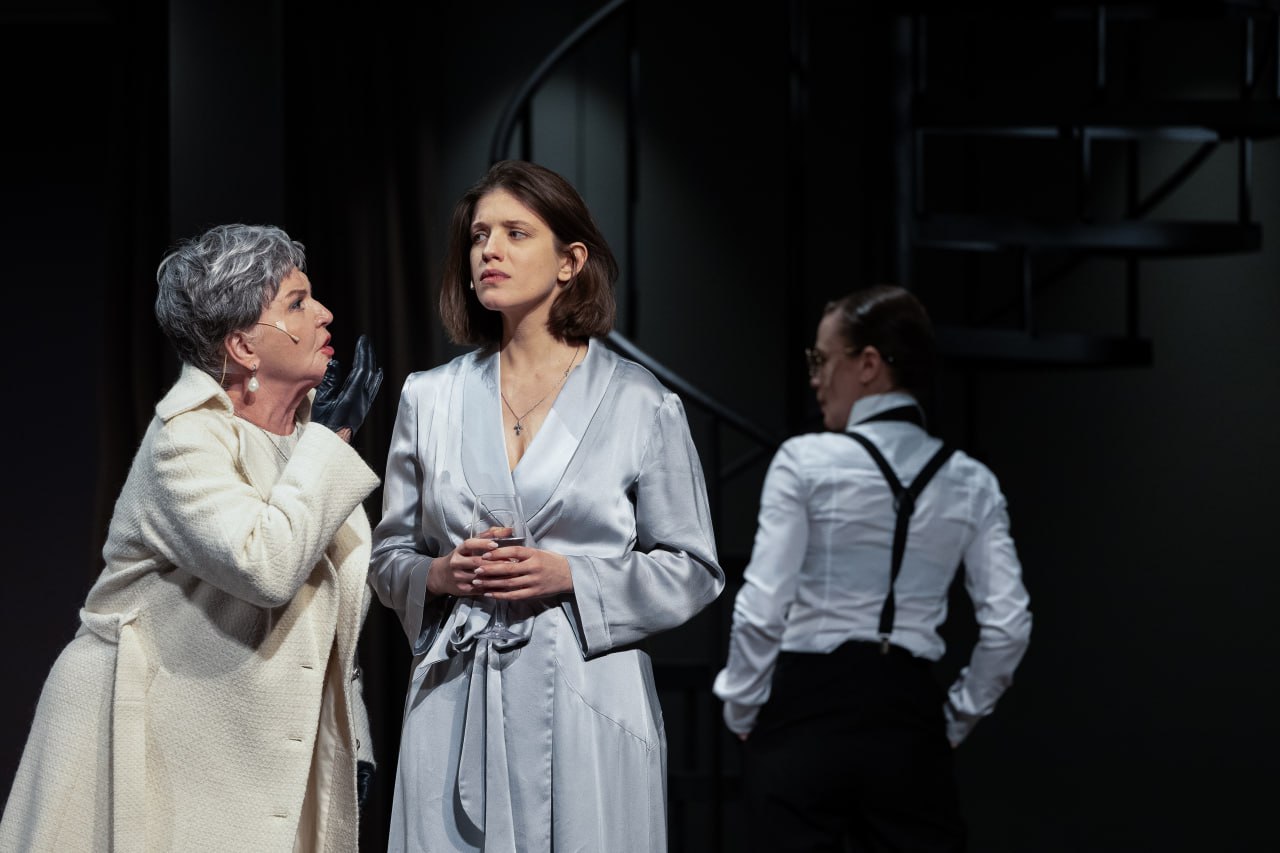Kabbalah of the holy man: "Tartuffe" at the Theater of Nations hits a sore spot

The gloomy, frightening, realistic "Tartuffe" at the Theater of Nations is not at all what we are used to even in the best interpretations of Moliere's play by Lyubimov, Efros or Mirzoev. In Yevgeny Pisarev's production everything is painfully serious, and although the farcical nature of the original is preserved here, the play does a lot to make the audience feel uncomfortable. For all performances since the premiere on December 18, tickets have long been sold out, and everything goes to the fact that the new "Tartuffe" will be the most important hit of the season.
"Tartuffe" is coming to the Theater of Nations
Amazingly, since the mid-17th century, whenever Molière's "Tartuffe" has been staged, it has always made one say that - well, of course, now is the true age of the Tartuffe. And again this has always been true. But how to approach the material, which is eternally relevant and at the same time familiar to the pain from school, learned by heart and even seen in the theater more than once?
Yevgeny Pisarev began by ordering a new translation for his production at the Theater of Nations. Sergei Samoilenko has modernized the speech of the characters so that it sounds like today, the characters can call each other moron, use words like "like" and call to "relax" when the clouds are already gathering over the unfortunate family. The maid might say, "You can strip naked right here, but you won't seduce me." To this quickly get used to it, it is Moliere quite organic.

The action is transferred to modern France, the family of Mr. Orgon lives in a respectable bunk apartment with floor-to-ceiling windows, on the wall a huge TV constantly shows French TV programs. A lot of electronic French-language music is playing. And the contrast of the fact that the characters are called by foreign names and the TV they watch in French, and they communicate like the inhabitants of Patricks, becomes one of the first trump cards that the director puts in front of the audience.
Then there is the cast, which is also directly related to the difference in the assignments given to the actors. For example, Igor Gordin as Orgon is the only one of all who plays a classic Molièrean comedy. That is, an influential and rich man, not a fool, but he fell under the spell of Tartuffe and walks around as if enchanted, repeating other people's aphorisms like a mantra. Gordin appears on stage - and the audience laughs, pitying the naive bourgeois and seeing his reflection in him. He leaves the stage - and again there is horror at how slowly and inevitably evil creeps into this luxurious house, which is not even particularly disguised.
His wife Elmira is played by Anna Chipovskaya, who is all insulted dignity. Sarcastic, arrogant, intelligent, she can be predatory when her family is in danger. Her brother Cleanth (Denis Sukhanov), an exalted member of the bohemians and owner of the most luxurious outfits in the play, appears periodically. Orgon's daughter (Mila Ershova / Elizaveta Kononova) does not remove headphones from her head, runs in short skirts and always quarrels with her fiancé, the young dummy Valer (Grigory Vernik / Danya Kiselev), the son (Gleb Shevnin) wears a kosukha and drives a motorcycle. Orgon's mother (Irina Kupchenko, Olga Naumenko) wears such luxe clothes and is full of such uncompromising grandeur that we roughly understand how she raised her son and why he falls so under the influence of other people's authority.
How Tartuffe turned out
We all remember how long Moliere always procrastinates with the appearance of Tartuffe, so that we have heard all sorts of information about him. Pisarev, too, cannot deprive himself of this pleasure. Therefore, when Tartuffe does appear in the third act, the spectator can hardly contain his impatience. The spectator is naturally aware that Sergei Volkov, the biggest young star of Russian theater, plays one of Moliere's most famous characters. Having become famous back in St. Petersburg in Butusov's productions, Volkov thundered all over Moscow with his Per Gunt at the Vakhtangov Theater, receiving all the prizes possible and the nation's adoration. Volkov's Per Gynt is hardly the best thing that has happened in Russian theater this decade. It's a pity that the play was closed this year, like all other performances with Volkov, except for "King Lear", where he still plays Edmond, but very rarely.

But this year he has already had two high-profile premieres. One - in the play "Damasobachka" Alexei Mizgirev in the MHT, yes, in the very one where Gurov and Anna Sergeevna literally bathe in watermelon pulp after a painful psychotherapeutic session. And there - in "Hunger" by Knut Hamsun, also a notable event in the Moscow theater. Therefore, many go to the Theater of Nations just to see how nervous intellectual Volkov will give Tartuffe. And - enters Tartuffe.
To begin with, he completely contradicts everything that the characters have said about him before. Concentrated, soft-spoken, intelligent, Tartuffe obviously could not, as the maid says about him, get drunk in front of everyone until his stomach cramps. He's not scattering Bible quotes left and right. He generally looks like a young man exhausted by the struggle with his own passions, to whom the most important thing is not to be disturbed in his prayers. You immediately respect him, and even though we know he's a fraud, we still begin to wonder if we're wrong about him, if he's being portrayed here as a positive hero. Even his declaration of love to Elmira is like Turgenev's Bazarov, tragic, hopeless and not at all, not at all funny.
But then Volkov, in Pisarev's version, leads us to the slow and alternative recognition that this is why Tartuffe is not a character from a play four hundred years ago, but a very real, actual threat. At the moment when material and spiritual power is concentrated in Tartuffe's hands, when everything that seemed not just harmless but natural and noble is suddenly refracted and becomes a crime, the characters turn up the television. They speak in French, as if to emphasize that all this is out there, far away, but we have already understood everything. Heroes do not need to pronounce all the actual terms of the new yazd of the twenties, the viewer can easily do it in his head.

The TV is working even louder, even louder - and then suddenly in the finale Pisarev so harshly and accurately gives the famous Molièrean finale with "god from the machine" that everything is again turned in the eyes of the audience. Moliere's viewer could hardly have understood at that moment, as acutely as we do today, what had actually happened before our eyes and what the sympathetic Orgon family was in every way. And in this moment of truth, in this perfect clarity, Molière's genius suddenly shines through, and how carefully and wisely Pisarev read him, as if making "Tartuffe" a continuation of his "Cabaret," which he produced two years ago at the Theater of Nations. And it is still not easy to get there, because, unlike domestic cinema, the theater still continues to describe reality so that we can recognize ourselves with our problems and all the temptations to which we have so willingly succumbed.
Переведено сервисом «Яндекс Переводчик»

